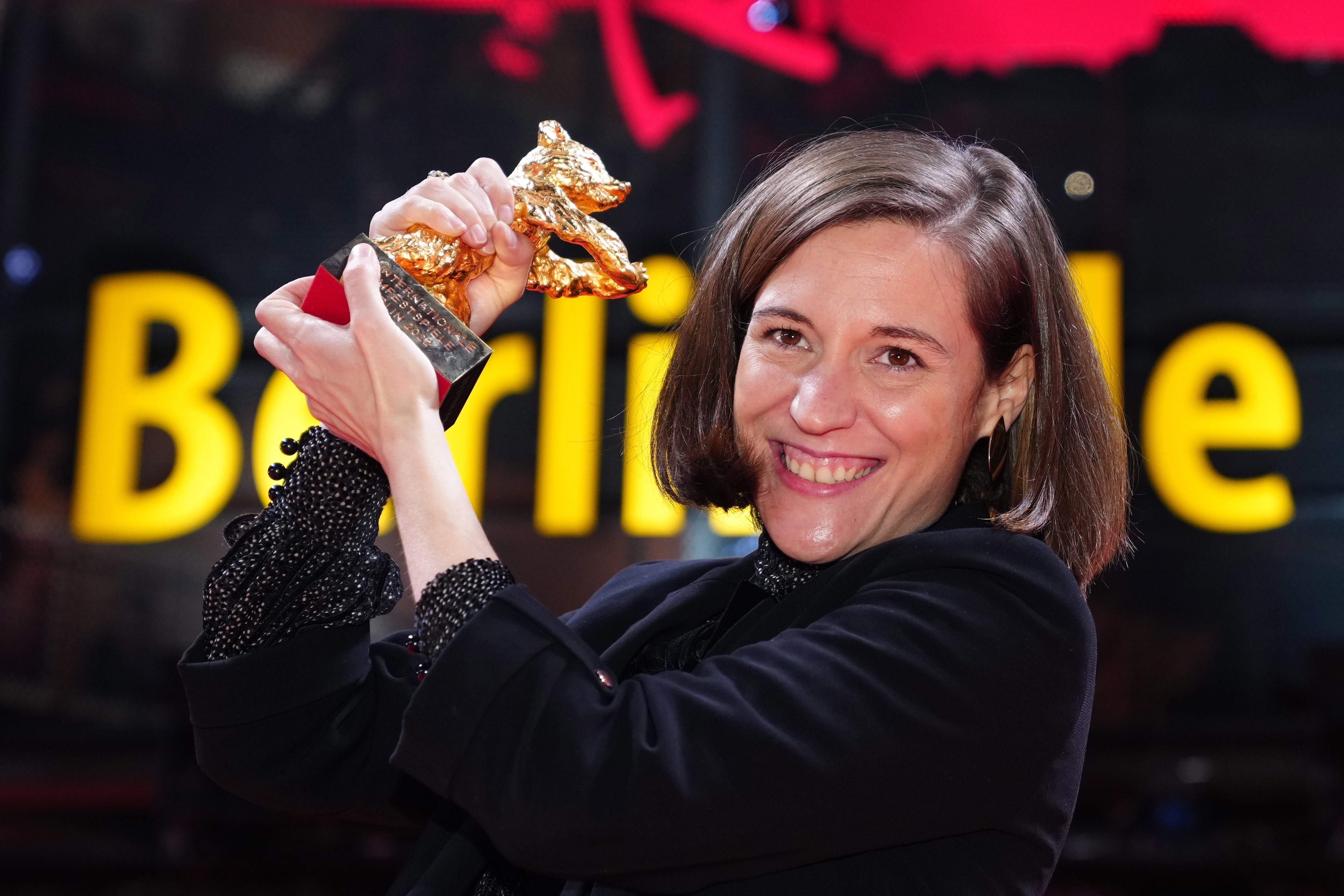The Golden Bear award won at the Berlin Film Festival yesterday by Catalan director Carla Simón for the film Alcarràs has made headlines in both international newspapers and specialist entertainment media - from Germany and France, all the way to Hollywood. The movie has won the most important award ever won by a Catalan-language film. Hollywood's most influential publication, The Hollywood Reporter, dedicated a story to the Catalan movie's win, defining it as a "moving and bittersweet drama": "Alcarràs, Carla Simón’s moving drama about a family of Catalan peach farmers, has won the Golden Bear for best film at the 2022 Berlin International Film Festival. Simón, whose debut feature, Summer 1993, took Berlin’s best first feature award in 2017, made a triumphant return to the Berlinale with this bittersweet drama, which follows the last summer harvest before the family, who have been farmers for generations, will be evicted from the land to make way for urban developers," it added. Also in the US, The New York Times notes that Carla Simón herself comes from a farming family and used non-professional actors in the film. "The film focuses on a family that has been cultivating its land since the Spanish Civil War and is forced to make way for a company wanting to build a solar farm on the property," it said. In an emotional speech accepting the award, "Simón dedicated the award to the modest farmers 'who cultivate the land every day to bring the food to our plates, in a way that is a form of resistance'", added the Times.
Berlin: ‘Alcarras’ Wins Golden Bear for Best Film https://t.co/N4SZeH3ACG
— The Hollywood Reporter (@THR) February 16, 2022
“Alcarràs,” a feature about a family of peach farmers from the Spanish director Carla Simón, won the Golden Bear, the top prize at the Berlin International Film Festival. https://t.co/P8d5vLYu4P
— New York Times Arts (@nytimesarts) February 16, 2022
In Europe, the French newspaper Le Monde described how the film presents "the difficulties of a family of Catalan farmers pressured by modernity". "The film follows the Solé family, who for three generations have cultivated hundreds of peach trees on land belonging to wealthy owners. But the latter want to uproot the trees to install solar panels and offer Solé the choice of adapting to this new situation, or leaving. The head of the family, Quimet, refuses to watch this world disappear. Around him revolves a fragile family balance - from children to the elderly - which is in danger of collapsing. All the actors are filmed very tenderly. The film is both delicate and profound when it comes to the forced modernization of the countryside or the conflict between economics and ecology," said the French daily.
Meanwhile, the leading German newspaper, Frankfurter Allgemeine, recalled that Alcarràs was the winner from the eighteen works presented in competition at the Berlinale. "It tells the story of a family of fruit growers in southern Catalonia who are threatened with eviction. The prospect of their peach trees being replaced by solar panels divides family members," it added. German public television broadcaster Deutsche Welle highlights the light that permeates the film. "In this sun-filled drama about the clash between traditional agriculture and profit maximization, Catalan director Carla Simon portrays a tight-knit family of peach growers who face eviction following the death of their large orchard's owner. The movie's amateur actors impress with exceptionally natural performances," its said.
Berlinale's Golden Bear award goes to 'Alcarras'#123INFOhttps://t.co/bhsCcIkSrZ
— 123 INFO DEUTSCHLAND (@123_INFO_DE) February 16, 2022
Bei der Berlinale bekommt die Regisseurin Carla Simón für ihren Film „Alcarràs“ den Goldenen Bären. Weitere Auszeichnungen gehen an Filme aus Mexiko, Frankreich und Südkorea. Auch Andreas Dresens deutscher Wettbewerbsbeitrag wird bedacht. https://t.co/EQNZLPeh2b
— Frankfurter Allgemeine gesamt (@FAZ_NET) February 16, 2022
In Italy, the newspaper Cinecittà News has stated that "this story set in Catalonia has a universal power". The Italian entertainment newspaper also interviewed the Catalan director: "We all have a family to relate to. You don't choose it, you are born into it - concluded the director - This is why family relationships are complex and profound, so full of contradictions and unconditional at the same time. Agriculture is also something that is at the same time unconditional. It affects us all, what we eat every day. Thinking about who supplies us with food and how they do it is something we should all do, considering also that the agricultural industry is taking the place of traditional agriculture."

